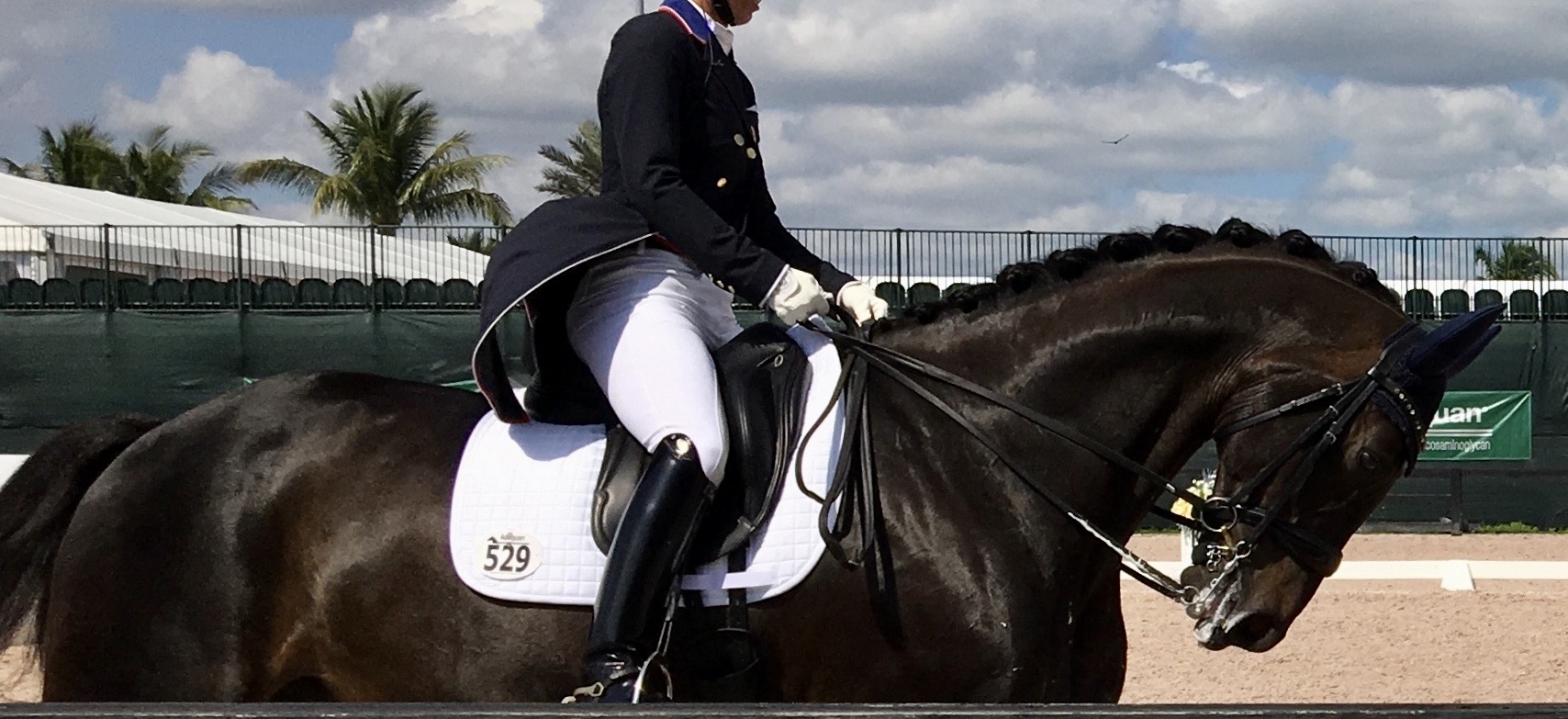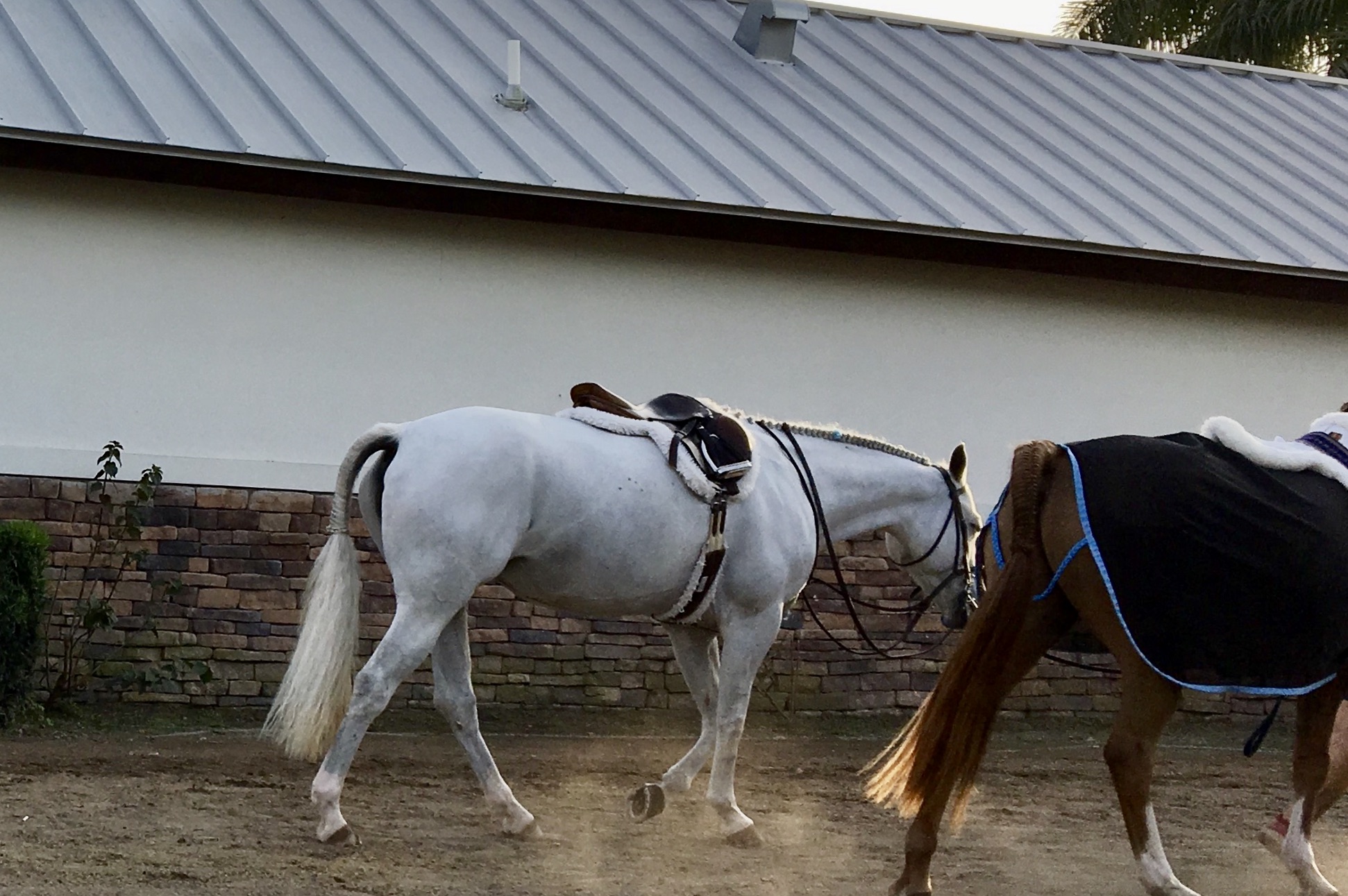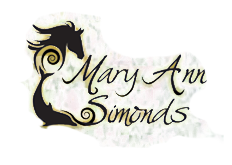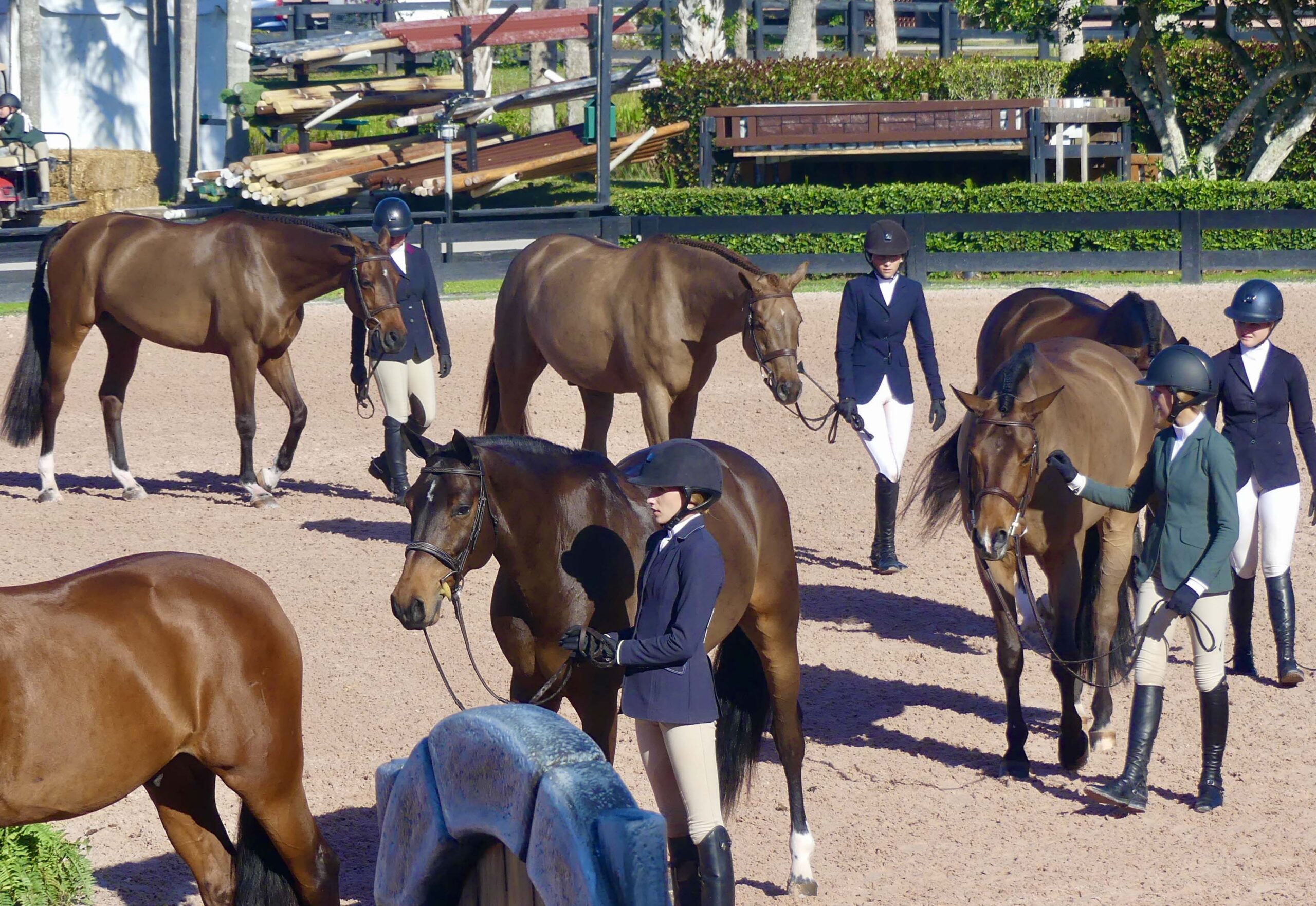Animal Welfare and Public Awareness
Economics, ethics and horse welfare have been hot topics lately as the public questions what humans do with horses. From Olympic sports to endurance and other disciplines, the public sees horses as the same creature. With food animal welfare standards being implemented around the world, the sport horse industry must defend its position of using horses for sport. Indeed, many horses enjoy the competition and participate eagerly with their human companions, but other horses struggle with either mental or physical welfare issues.
Animal welfare science has evolved many tools to assist in determining whether an animal is happy or in pain. These tools have successfully changed the way many food animals are housed and cared for, but are slow to make it into the horse world. As the public becomes more aware of what animals need to be happy, the public particularly through social media is pressuring all horse sports to support why we think our horses are happy competing. The World Horse Welfare has been advising the FEI for thirty years on sport horse welfare and is actively addressing this issue. https://www.worldhorsewelfare.org This summer they sponsored a series of panel discussions on the topic of ethics and horse sports. https://www.youtube.com/watch?v=2y8ll5Fkudk
With their own personal grooms, regular feeding, daily bathing, plenty of water, nice shelter, soft bedding, daily exercise, an on-call health care professional and often their own personal massage therapist, from the outside looking in, horses used in sports may appear to be some of the best kept horses anywhere. And for the most part, horses are well cared for and dearly loved. But for others, horses are seen as valuable investments.
When a Horse is a Commodity and Horse Sales Drive an Industry

When people “invest” in a horse hoping to sell her/him for more money than they paid, then the horse becomes an “asset” or “commodity”. And here is where the welfare issues often start. This is not to say that a horse cannot be both a loved animal and an asset, actually many horses are cherished as both. But as prices for horses have gone up and the monthly care risen, investments in horses have time frames in which people need to sell their horses before the monthly costs out pace their investment. Even good people who say they “love horses” will suddenly start to cut corners in order to cut expenses.
A trainer gets pressure from an owner to sell the horse and the trainer does not want to get stuck with an expensive animal he/she cannot sell, so the trainer may try a few “tricks” to get the horse to perform better or stay sound in order to sell the horse. Or an owner, rider or trainer needs a “win” to stay on top for points and they think just this one time they might try something to give the horse an edge. Through the last 50 years, I have seen and heard more things done to horses than I care to remember – all in the name of money or winning – and oddly many of the trainers openly explained why they were doing the things they were doing to the horses. Many felt they had found a new “trick” to short cut training, when in fact the methods would be considered by most welfare scientists as a form of abuse.
From using electric shock dog collars under saddle pads to get horses to run faster or jump better, to tying horses tails to their heads so they don’t carry it crooked or injecting alcohol into the nerve so the horse cannot swish her/his tail (once saw the tail fall off while the vet was demonstrating how to alcohol a tail) or keeping a horse’s head tied up for hours in a stall so they will lower their head for a pleasure class to putting plastic plexiglass on top of jumps to trick a horse to jump higher than it sees, or withholding water at a show to “make the horse quieter”…..and the list goes on and on and on. The point is that many of the these people were not ethical people to begin with and would sacrifice the horse’s welfare in order to win. However, some of them have won and therefore they have been looked up to as top professionals.
And I don’t think I need to mention how many drug “cocktails” have floated around with cleaver chemists trying to figure out how not to get caught with a drug test. If a trainer or owners does not get caught, well then that is license to continue using. While our competition organizations for racing and other sports have made good headway offsetting drug use, it continues secretly (and sometimes not so secretly) as protocol in some barns. To address horse sport welfare, you have to look at what has caused it.

Underlying Causes to Sport Horse Welfare
1.Economics -We have already discussed economics as a main contributing factor to horse welfare. While horse sales are a big part of the horse industry, prize money and points also contribute to horse welfare issues. The higher the purses, the more likely people are to cheat or compromise their horses. There is no reward for those trainers who do put their horse’s welfare first and opt not to compete. One trainer told me they lost their client and a barn full of horses because he refused to jump a horse when the horse was slightly lame. Another trainer did not feel the horse was having a good day and did not want to risk competing, but the owner told him that he had flown in with guests for the competition and if the trainer would not show the horse, then he was fired. And he was fired. These are bad owners and luckily not the majority, but until our industry has some support for trainers who do put horses over money, these kinds of injustices will continue.
For a sport that offers just a trace of prize money compared to other sports like tennis, it is surprising the amount of effort that goes into winning in horse sports. While prize money is growing with sponsors, sales are still driving the industry. Winning may not make the owner or trainer a lot of money, but the points the horse earns add up as does the horse’s experience making the horse worth more as a “winner”, than as a simple competitor.
2. Ignorance – Lack of education about equine behavior, learning, ecology and general horse biology is often a problem. If you don’t know how much a horse needs to sleep or that they only get REM sleep lying down, then you would never think why your horse is spooky at a horse show when it has had not REM sleep for 2 weeks. Sleep deprivation is common at competitions where horses have lights and sounds all day and night and often never get enough sleep. Most trainers have no idea even how horse perceive their environment, how a horse sees or how powerful smell is for relaxing or stressing horses. With no formal education requirements for becoming a horse trainer, the field is open to all – good and bad.
Few trainers have degrees or any education in equine science, training, biology, behavior or welfare. There are no tests or schooling to become a horse trainer in the US. Almost anyone who does not have a recent felony can apply for a racing license and if you can market yourself well and win, then just about anyone can become a horse trainer in any discipline. I once surveyed trainers in California who had large show and racing barns. Only 5 percent even had a college degree and most had nothing to do with horses or the horse business. The US has the largest uneducated equestrian professionals compared to all other developed nations. So education is key. Again, this is not to say that you need a college degree to be a good “horseman”, it simply points out a fact. Many of the old horsemen and horsewomen took time with horses, but in today’s fast paced world, time is money and so often horses are pushed faster than they can learn and adapt.
3. Lack of Respect -When horses were essential as transportation, people learned more about horses. There was a culture of “horsemen and horsewomen”, but since people do not live with horses nor really need them, there has been a loss of knowledge and respect for horses. If an animal is treated as an asset and nothing more than a “sale horse”, then it is placed at a distance from the person. The animal is a negotiated item to be put into a “package deal” with little regard for the animal’s welfare. Interestingly, trainers who do not respect people often do not respect horses either. As Darwin stated many years ago, and I am paraphrasing, “Any animal who willing gives service to man, will surely be overused”. Horses have willingly given service and cooperation to humans, and yet few humans actually respect horses for who they are as a species and sentient being. This takes understanding and compassion as well as respect.
4. Lack of Ethics – The horse business has been known as a “shady business” for years. When I first started brokering horses back in the 1980s in California, I was so careful not to be called a “horse dealer” or a ” horse trainer” as both had such negative connotations. Instead, I tried to raise the bar in horse sales by having disclosure statements, and business agreements to do any horse sales transaction. Many trainers did not want to sign anything which of course brought into questions their ethics. Why would a person not want to disclose information about a horse that would help the new owner better care for the horse? The shadiness of horse deals continues – multiple commissions never disclosed, horses traded who are not sound or have problems, health or behavior information not disclosed. Hardly a day goes by that I don’t talk to a trainer who tells me of a horse they bought or had on trail only to find our the previous trainer or owner lied to them about the horse. Of course these are the people who should not be in the horse business as they damage the reputation of all horse professionals and certainly make it difficult for the general public to trust entering our sport.
5. Social License – When something is done over and over again and is culturally accepted, it often gives “social license” to continue doing with little thought as to whether the action is harming anyone. For example, I walked into a barn to evaluate a horse behavior issue for a client and there was a young girl groom injecting both horse in the cross ties. I asked what she was injecting and why. Her answer was, ” I don’t know. My boss told me to do all the horses as we inject all the horses daily for the first week of the show so they are quiet and get used to being quiet”. I asked her if all the horses were unruly and wild. She said,”No, but we do it anyway as it is our barn policy as we don’t want anyone getting hurt”. Clearly, this girl knew little about the biology of a horse or the potential side affects of sedating a horse. I asked her if they had to sedate all their horses and her answer was, “Everybody she had worked for sedated horses when they first get to the shows”. Although her motives were for the safety of the riders, this is an example of doing something because it has been done by enough people, therefore it is OK to do with no thought or knowledge of how it was affecting the horses.
Another example is the use of hyperflexing the neck or Rokhur. While the USDF now have regulations regarding the use of hyperflexing, other disciplines do not because this is a common training technique. There are numerous training techniques that have social license because horses are so willing to try and please us, that they do not complain. If we are to continue as a legitimate sport, then it would benefit us to examine why we do certain things to horses when there are often much easier and kinder methods to train horses. The activities our sports are operating under that have given trainers social license to to do things to horses to make them win are under scrutiny of the public. It is just a matter of time before not just racing and walking horses are criticized, but dressage, jumping, reining and other disciplines as well.
This is a big topic to cover and deserves input from all sides. Hopefully our horse sports can evolve using welfare science combined with ethics and oversight to support best management practices for horses. More to on this topic later and let me know your thoughts.


Excellent review on issues that NEED to be thought over and openly discussed.
This is the only way to change mindsets and ingrained habits that are abusive at best. Only then, can we bring about the needed seachange and help one another become better horsepersons.
Ignorance can be overcome.
A topic I would also like to see is” back yard breeding”. We all have heard ” my mare is X (insert lameness, crazy, etc) so I am going to breed her…”. Like spaying and neutering sprays as an act if kindness, we too might examine the ramifications of poor breeding practices (horses are left to neglect, abuse and shipping off to kill pens, etc.).
Thank you Mary Ann for bringing these topics to light and enabling a forum to educate.
Ps “If you don’t think your
one voice can make a difference, spend the night in a tent with a mosquito ”
Be the mosquitoe